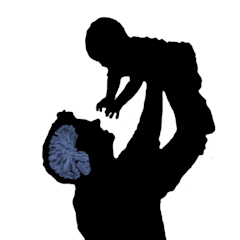
Articles on New mothers
Displaying 1 - 20 of 30 articles

New research sheds light on how autism affects how we feed our babies, and vice versa.

All the evidence points to paid partner’s leave having many benefits for children and families – but Labour’s promise falls short on time and money.

Low-income mothers with infants are struggling with food insecurity, which can lead to long-term health impacts for both mothers and children.

How you tell the story of a momentous event can help you make sense of what happened. Research finds new moms’ and dads’ narratives around childbirth held clues about their transition to parenthood.

Neuroscientists know that pregnant mothers’ brains change in ways that appear to help with caring for a baby. Now researchers have identified changes in new fathers’ brains, too.

Mothers with young children are consistently identified as having lower levels of physical activity and leisure opportunities, which place their physical and mental health at risk.

Supporting mothers’ and infants’ sleep can decrease the stressors of motherhood, improve maternal mood and mental health and promote better infant development.

When asked about postpartum exercise, women were curious about strategies and recommendations for physical activity after the birth of a child, including finding the time, energy and motivation.

Women who are physically active in the postnatal period report better mental well-being than those who are less active, but the pandemic has made exercise less accessible.

Pregnant women’s experiences can affect their babies’ health, even into adulthood. Researchers know societywide stresses can lead to these long-term consequences – and the pandemic likely fits the bill.

A study examined the psychological and social experiences of over 600 women with babies between birth and 12 weeks during the first UK lockdown.

New research finds that while some women thrived during lockdown, others found breastfeeding to be difficult and overwhelming.

The WHO recommends women should be encouraged to breastfeed straight after birth, for both the mothers’s and baby’s health, including increasing baby’s immunity.

There is no evidence that the coronavirus is transmitted through breast milk, and breastfeeding is encouraged during COVID-19. However, the support available to new mothers has changed dramatically.

For new mothers with postpartum depression, social distancing limits some of the best ways to improve their mental health.

Mobile health apps, teleconferencing with experts and thoughtfully designed educational platforms can all help families during the chaotic and confusing early years.

Most UK workplaces aren’t set up for women to breastfeed, so is it any wonder rates are so low.

Regular home visits by community health workers helped to increase breastfeeding rates in Kenya.

Breastfeeding mothers are turning to online groups due to dwindling real-life support — but these volunteer-led platforms don’t always have the best advice.

Mothers are told to stop breastfeeding when taking certain medications – even if they won’t harm their baby.
